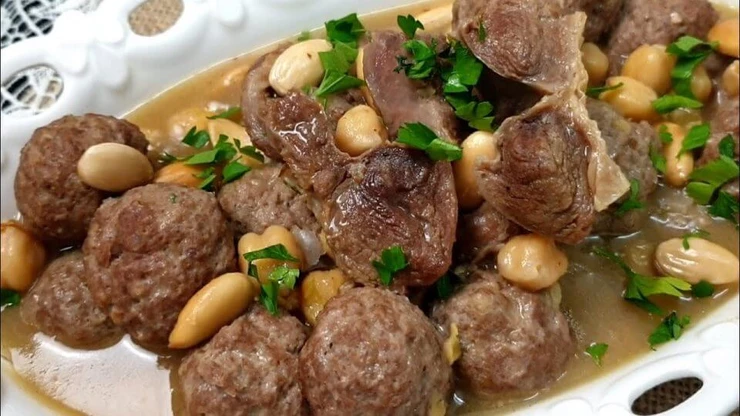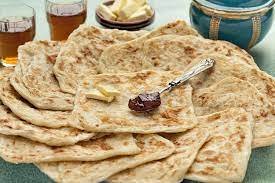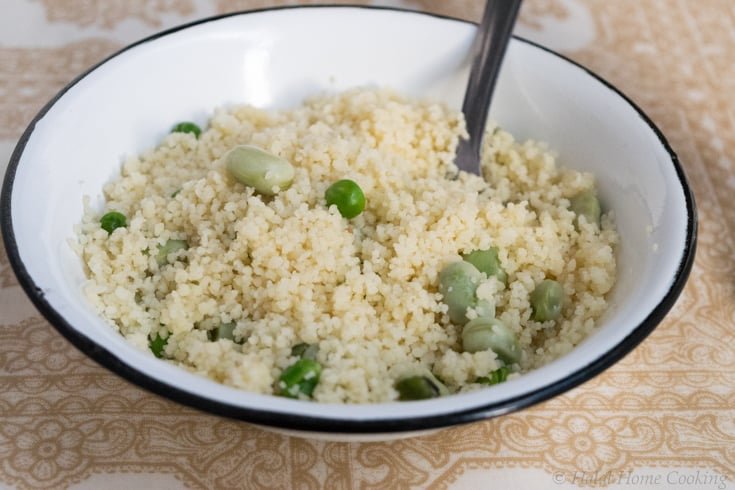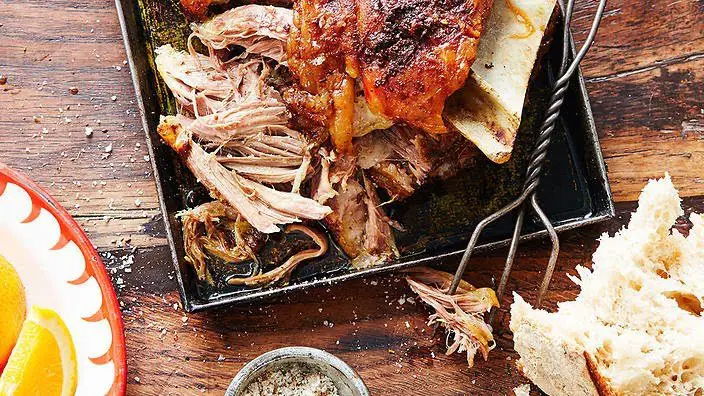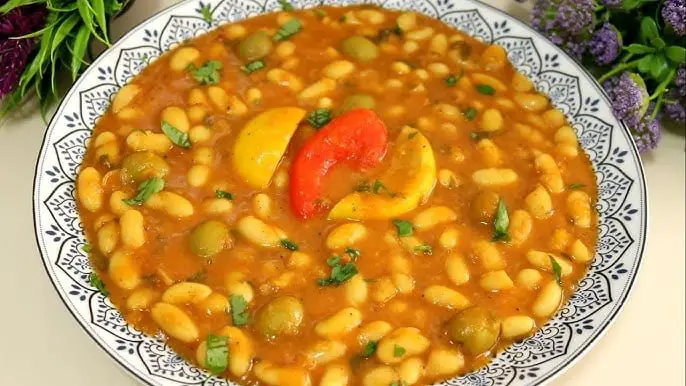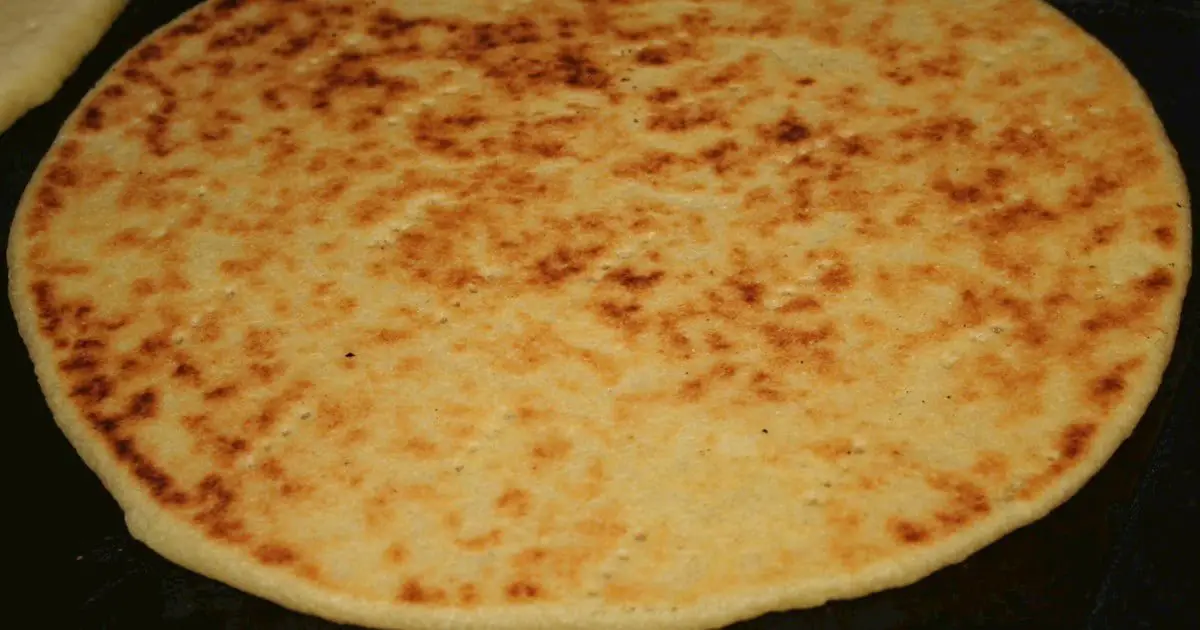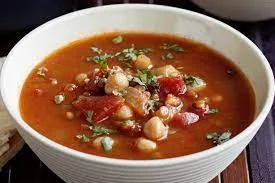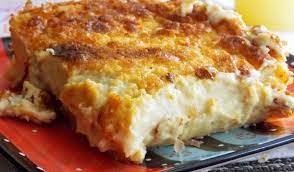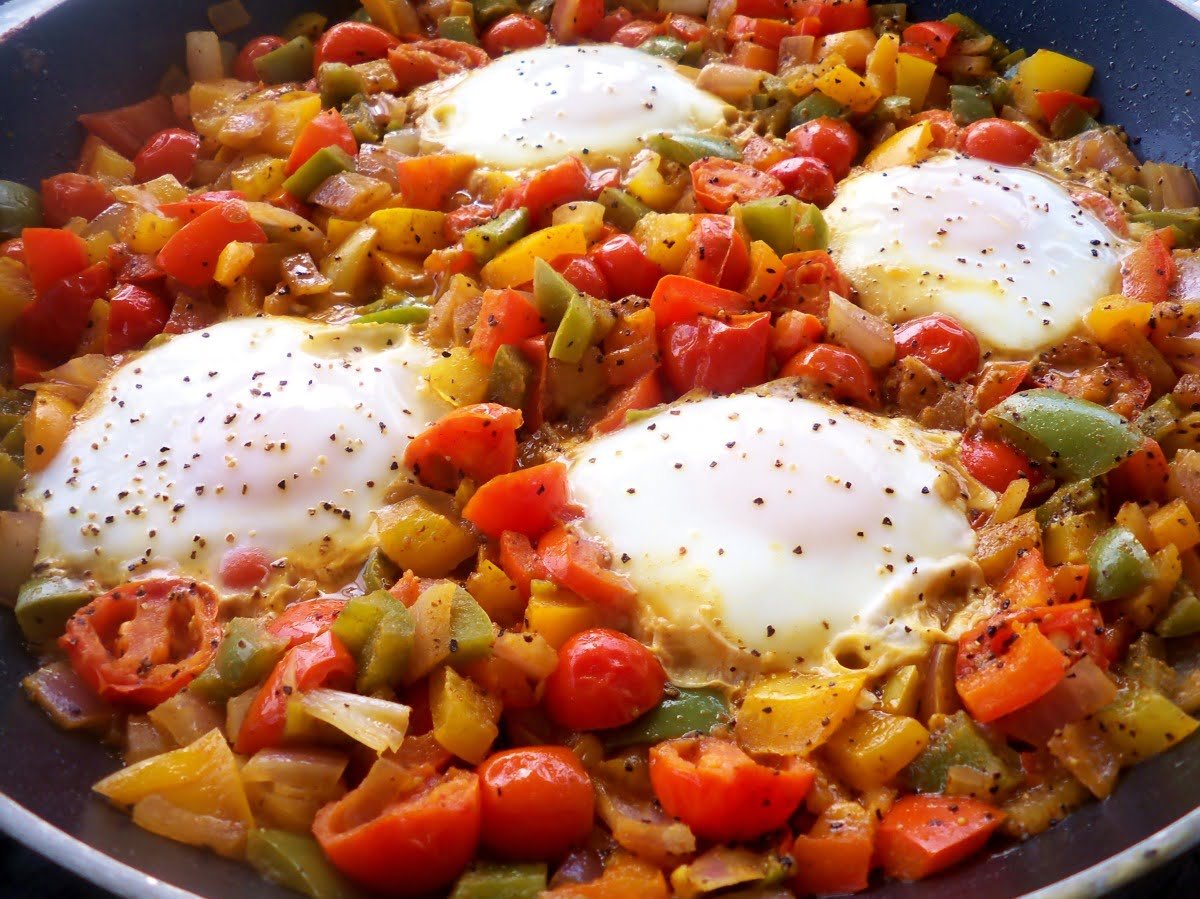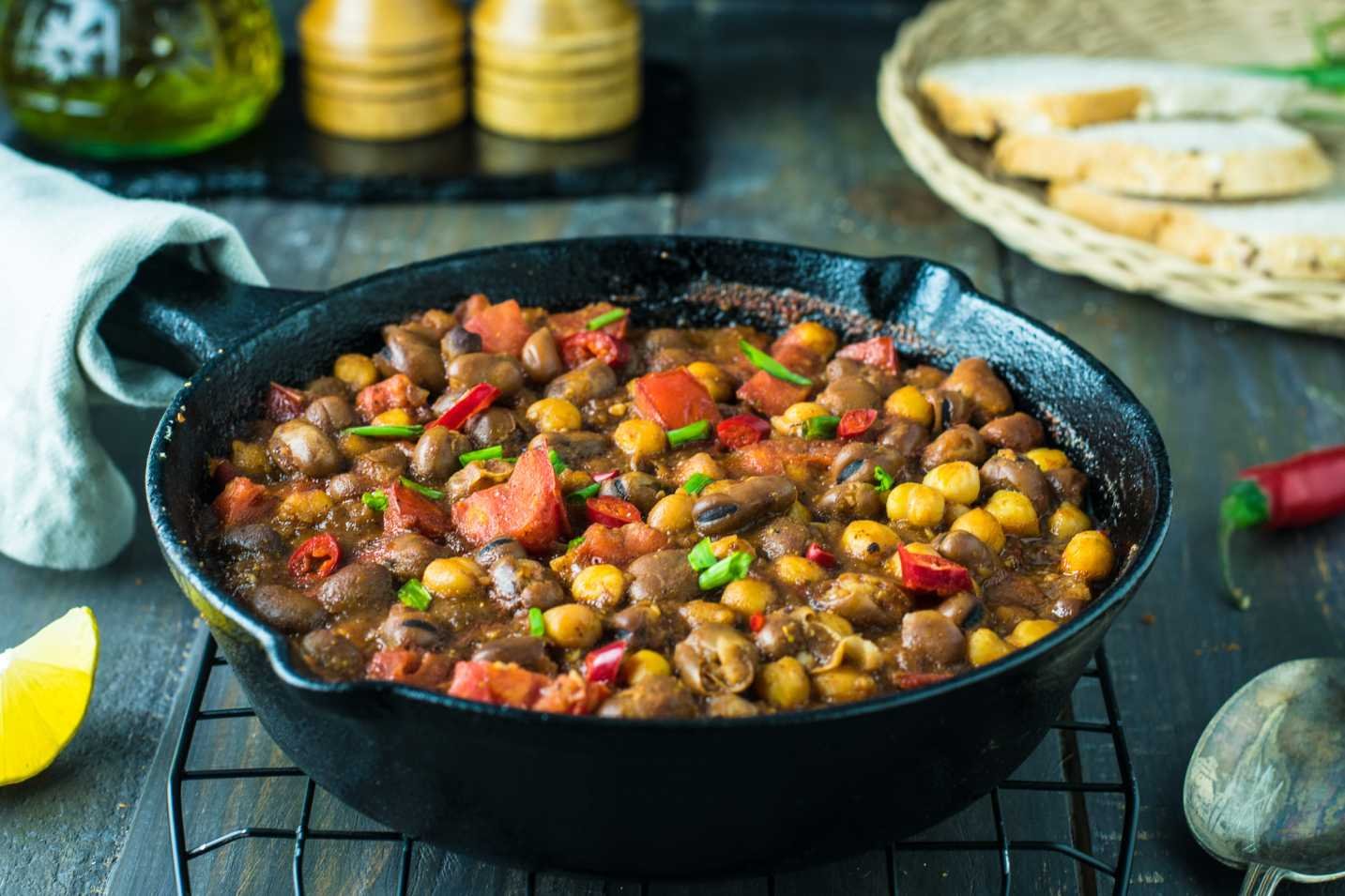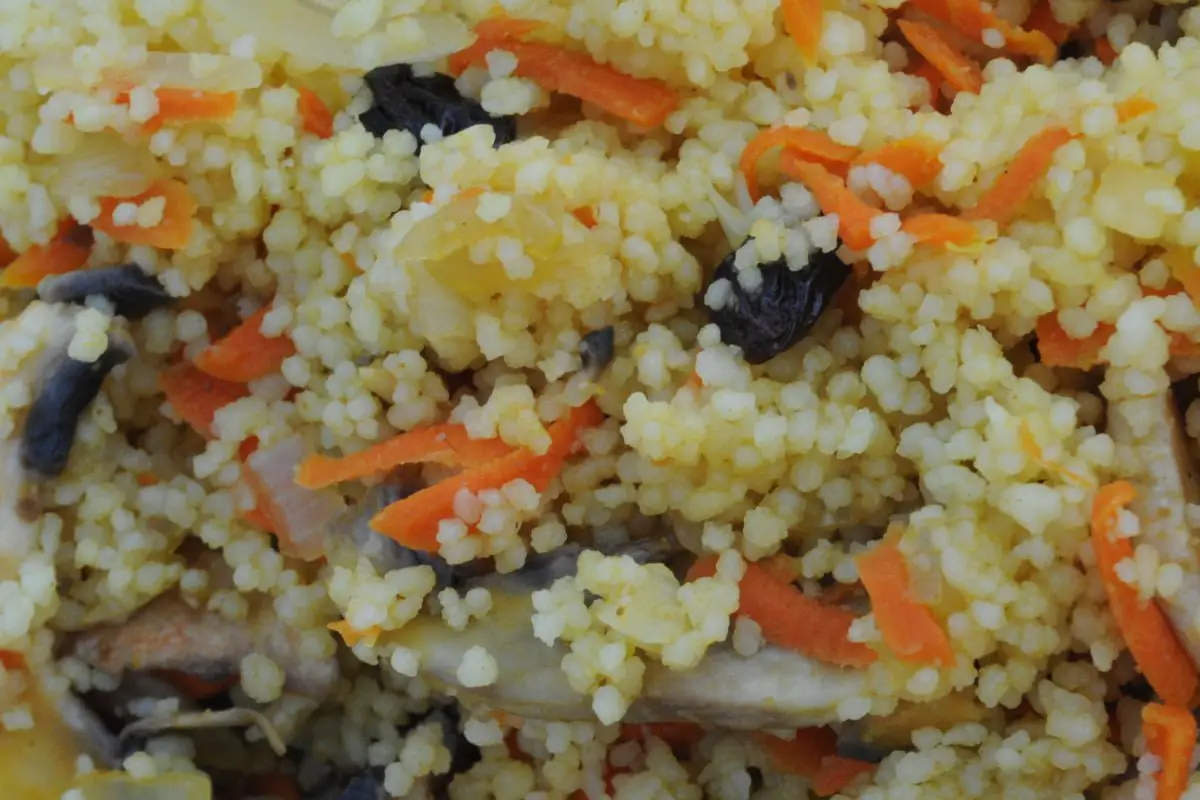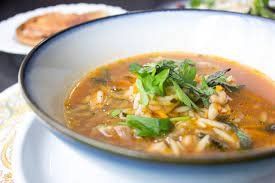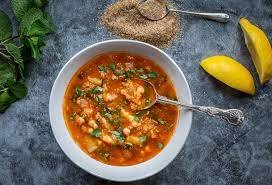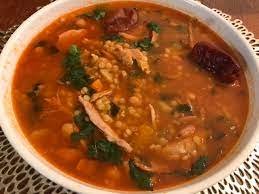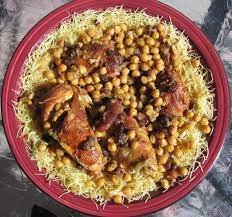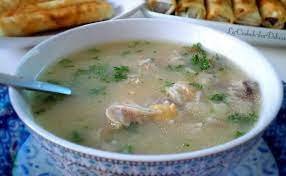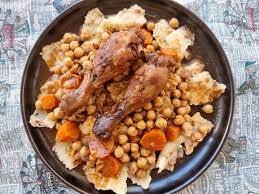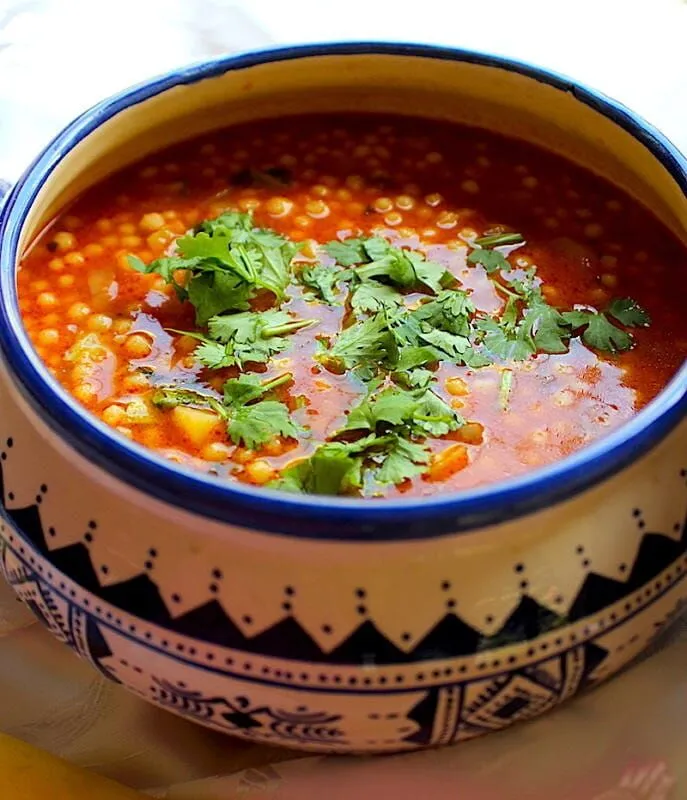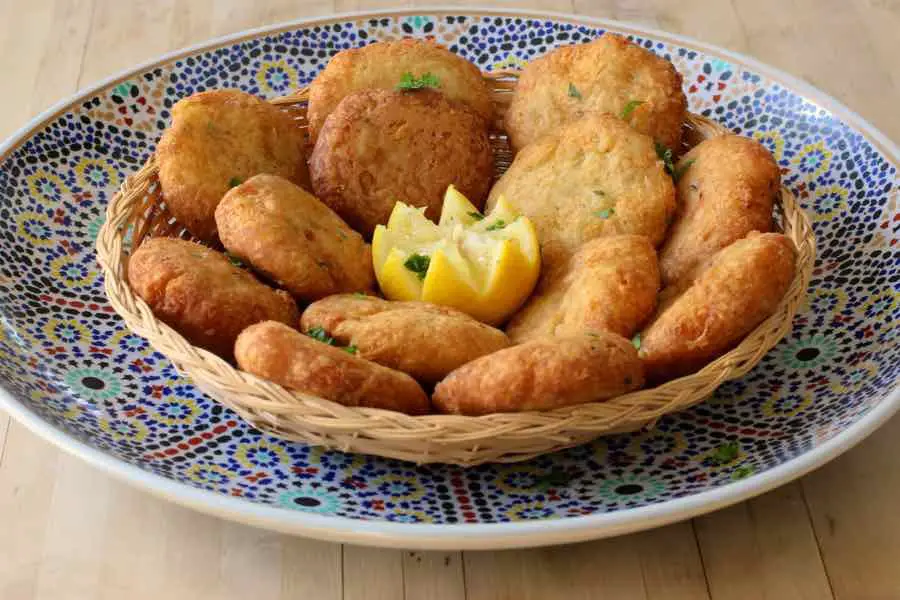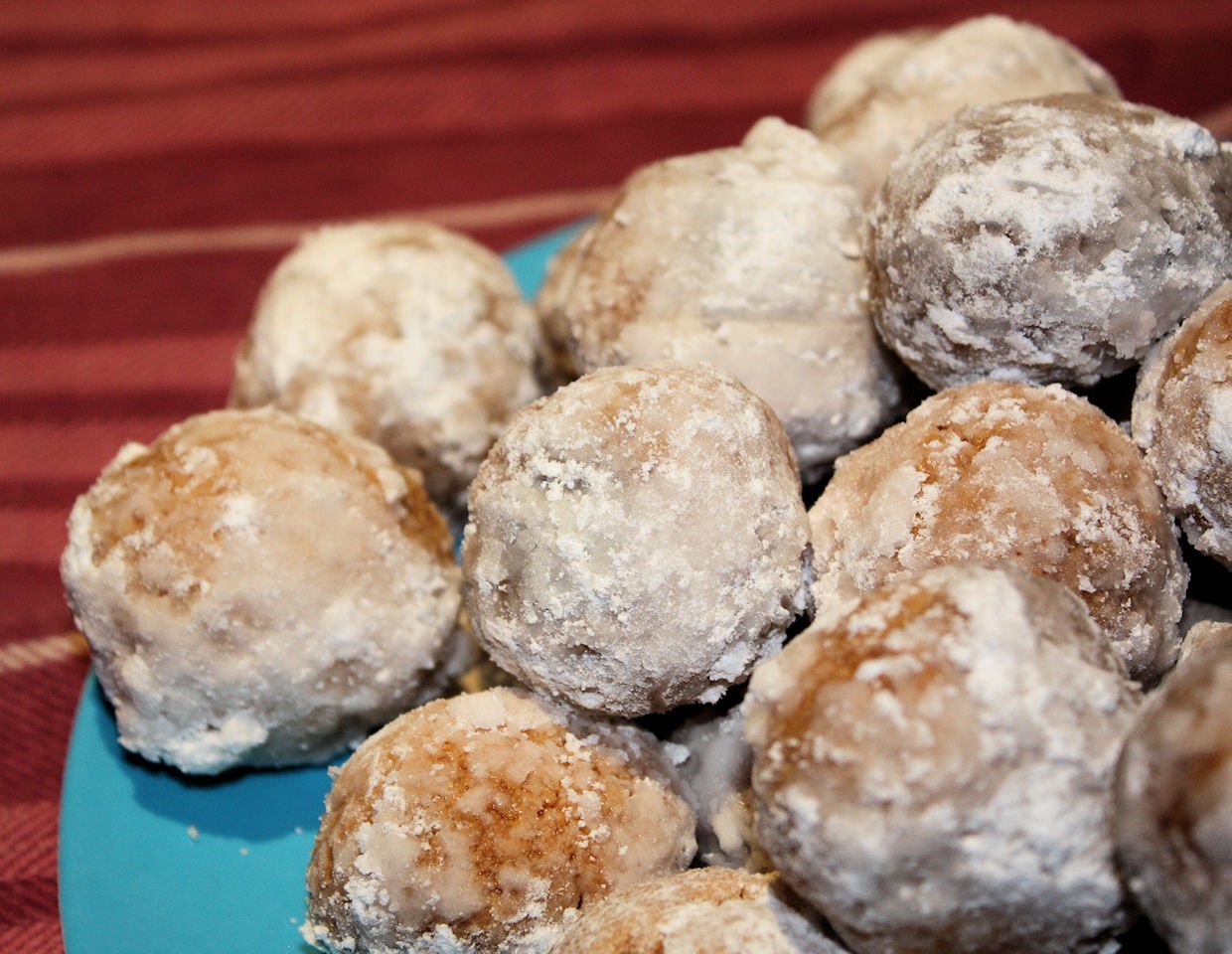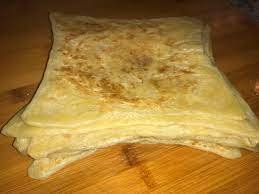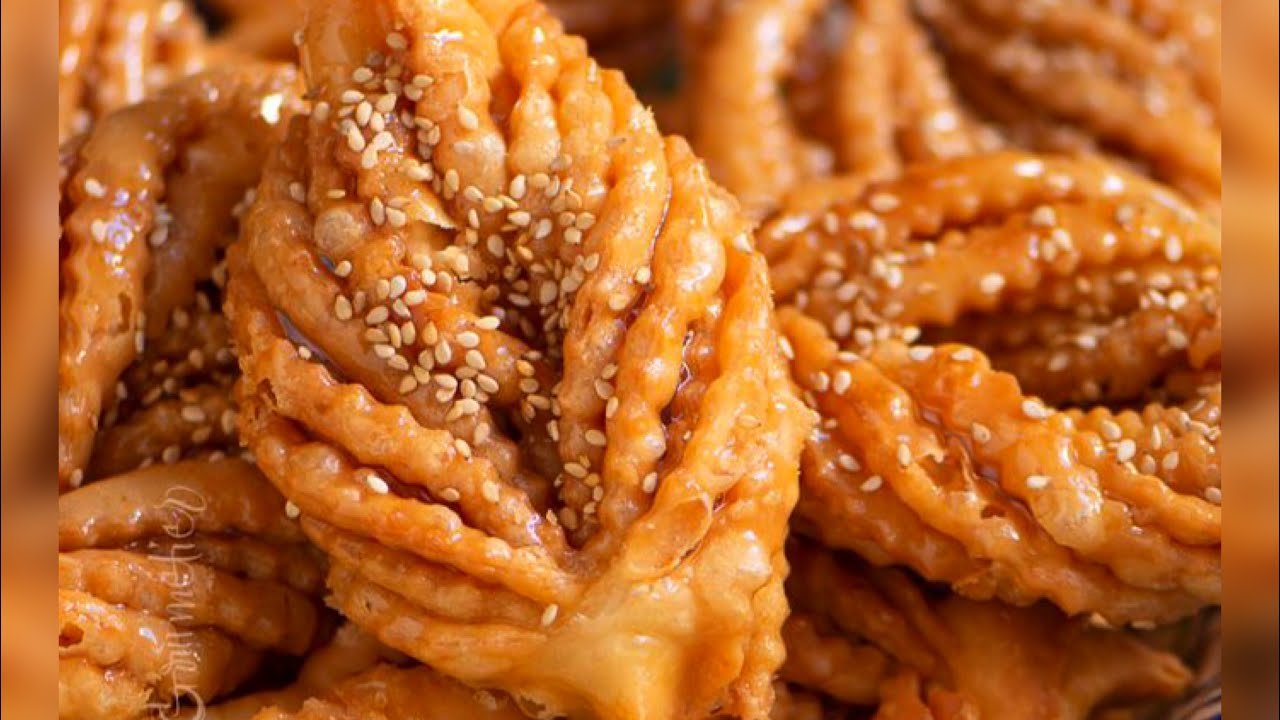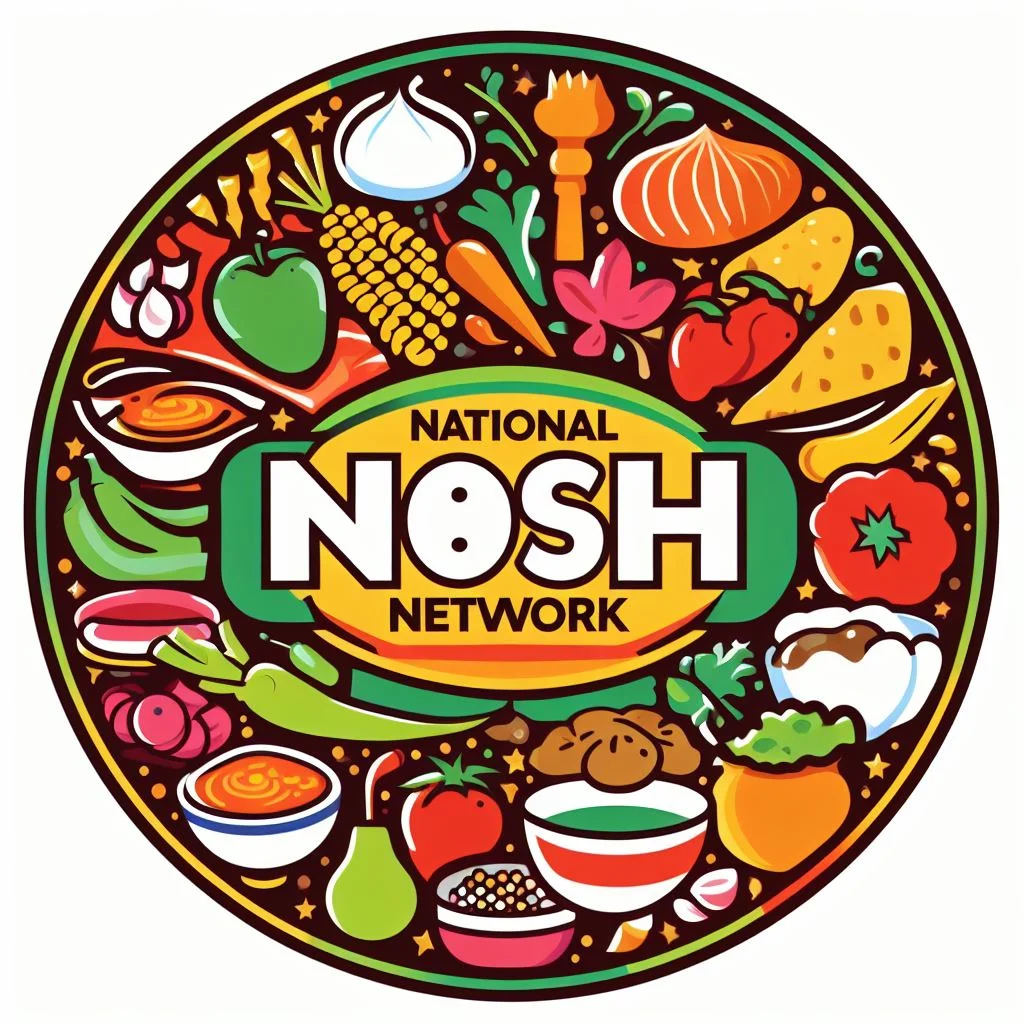Algerian food is a captivating tapestry of flavors, colors, and aromas that reflects the rich cultural history and geographical diversity of this North African nation. Nestled in the Maghreb region, Algeria boasts a vast expanse of landscapes, from the Sahara Desert to the Mediterranean coastline.
Its cuisine, deeply rooted in history and tradition, showcases the resilience and resourcefulness of its people.
Algerian Food – Key Takeaways
- Diverse Influences: Algerian cuisine reflects a blend of Berber, Arab, French, and Ottoman influences.
- Signature Dishes: Couscous, tagines, and merguez sausages are iconic Algerian dishes.
- Geographical Diversity: From coastal seafood to hearty desert fare, the cuisine varies across regions.
- Spice and Aromatics: Cumin, coriander, and mint are prevalent, creating a symphony of flavors.
- Historical Roots: The cuisine is deeply intertwined with Algeria’s history, shaped by centuries of trade and cultural exchange.
- Culinary Traditions: Algerian meals are a communal affair, emphasizing family and social bonds.
- Health Benefits: Algerian cuisine often includes fresh, locally sourced ingredients with potential health benefits.
Introduction to Algeria
Algeria, the largest country in Africa and the 10th largest in the world, is situated in the Maghreb region of North Africa. Bordered by Tunisia and Libya to the northeast, Niger to the southeast, Mali and Mauritania to the southwest, Western Sahara to the west, and the Mediterranean Sea to the north, Algeria is a melting pot of diverse influences. With a population of over 40 million, the country’s industrial activities are primarily centered around oil and natural gas, contributing significantly to its economy.
Read on to uncover the delectable secrets of Algerian cuisine, exploring its unique flavors and traditional recipes that have stood the test of time.
Algerian Food History and its Culinary Impact
Algerian history and its impact on the cuisine are interesting topics to explore, as they reflect the diversity and richness of Algeria’s culture and heritage.
Algeria’s cuisine is influenced by the cuisines of various civilizations that have ruled or interacted with the region over the centuries, such as
- the Phoenicians,
- the Romans,
- the Arabs,
- the Turks,
- the French.
Some of the main historical factors that have affected the cuisine are:
Algerian Food History – Ancient trade
Algeria was an important trading center in ancient times, connecting the civilizations of Mesopotamia, India, Persia, Greece, and Rome. Algeria’s cuisine incorporates ingredients and dishes from different regions, such as rice, dates, saffron, cardamom, turmeric, cinnamon, and cloves.
Algeria also developed its own wine culture, which dates back to the 6th millennium BCE.
Algerian Food History – Arab conquest
Algeria was conquered by the Arab Muslims in the 7th century CE and became part of the Islamic world. The Arabs introduced many dishes and ingredients from their Arabic and Middle Eastern cuisine, such as
- couscous, a semolina-based pasta; harira,
- hearty soup
- baklava, a sweet pastry.
The Arabs also introduced the Islamic dietary laws, which prohibited pork and alcohol, and encouraged the consumption of halal meat, dates, and honey.
Algerian Food History – Ottoman rule
Algeria was ruled by the Ottoman Empire from the 16th to the 19th century and was influenced by the Turkish and Mediterranean cuisine.
The Ottomans introduced many dishes and ingredients from their Turkish and Mediterranean cuisine, such as
- kebab
- grilled meat
- dolma
- stuffed vegetables
- coffee.
The Ottomans also enriched the cuisine with their culinary skills and techniques, such as baking, frying, and stewing.
Algerian Food History – French colonization
Algeria was colonized by France from the 19th to the 20th century and was influenced by the French and European cuisine.
The French introduced many dishes and ingredients from their French and European cuisine, such as
- baguette,
- bread
- croissant
- pastry
- cheese.
The French also modernized and diversified the cuisine with their cooking methods and equipment, such as ovens, stoves, and refrigerators.
How the Climate and Geography Shape Algerian Food
The climate and geography of Algeria have shaped its cuisine in several ways, such as:
Sourcing Local Algerian Ingredients
The use of local and fresh ingredients, such as seafood, fruits, vegetables, and herbs. Algeria’s cuisine reflects its diverse environment, which ranges from the Mediterranean coast to the Sahara Desert.
Some of the most popular dishes include trinxat (a potato and cabbage mash), escudella (a meat and vegetable soup), and cunillo (a rabbit stew)
Accommodating Seasonal Availability
The adaptation of dishes to the seasons and the availability of water. Algeria’s cuisine reflects its climatic conditions, which vary from hot and dry to cold and wet.
Some dishes are prepared only in certain seasons, such as harira (a hearty soup) and couscous (a semolina-based pasta) in winter, and salads and cold soups in summer. Some dishes also use water-saving techniques, such as steaming, roasting, and preserving.
Algerian Food Incorporates Flavors From other Regions
The incorporation of spices and flavors from different regions, such as rice, dates, saffron, cardamom, turmeric, cinnamon, and cloves. Algeria’s cuisine reflects its historical trade and cultural connections, especially with the Middle East, Turkey, and France.
Some dishes that reflect these influences are cannelloni (pasta rolls stuffed with meat and cheese), codonyat (quince paste), and paella (a rice dish with meat and seafood).
Understanding the Essence of Algerian Food
Algerian cuisine is more than just a collection of recipes; it’s a cultural expression, a reflection of the people’s connection to their land and heritage.
The essence of Algerian food lies in its ability to tell stories, preserving traditions through each meticulously crafted dish.
Algerian Culinary Traditions
Some of the main features of Algerian culinary traditions are: –
The use of Couscous
This is a semolina-based pasta, as a staple food and a national dish. Couscous is usually served with meat, vegetables, and sauce, and can be prepared in different ways, such as sweet, savory, or spicy.
The importance of bread
Bread is eaten with almost every meal. Bread is often baked in a wood-fired oven, and comes in various shapes and sizes.
Some of the popular types of bread are khobz (round bread), kesra (flatbread), and baghrir (pancake-like bread).
Sweets and Pastries
The diversity of sweets and pastries, which are often made with nuts, honey, and dates. Sweets and pastries are usually served with tea or coffee, and are especially enjoyed during religious holidays and celebrations.
Some of the popular sweets and pastries are baklava (nut-filled pastry), makroudh (date-filled pastry), and halwa (sweet confection).
Health Implications of Algerian Cuisine
Algeria has improved its health indicators in the past decades, such as reducing the under-five mortality rate from 72.2 deaths per 1,000 live births in 2000 to 22.3 deaths per 1,000 live births in 2020.
Algeria also has a high life expectancy at birth of 77.1 years, which is above the global average of 73.3 years. (Source: World Health Organization)
However, Algeria also faces some health challenges, such as the burden of non-communicable diseases, such as cardiovascular diseases, diabetes, cancer, and chronic respiratory diseases, which account for 81% of all deaths in the country.
Algeria also has a high prevalence of obesity, with 27% of adults and 12% of children being overweight or obese.
Algeria also suffers from some environmental and social issues that affect health, such as air pollution, water scarcity, urbanization, and unemployment.
Benefits of Algerian Cuisine
- Algerian cuisine has several health benefits, such as:
- Providing a good source of protein from meat, fish, beans, and lentils, which are essential for muscle growth and repair.
- Providing a good source of fiber from cereals, vegetables, and fruits, which are beneficial for digestion and bowel health.
- Providing a good source of antioxidants from spices, herbs, and fruits, which are helpful for preventing oxidative stress and inflammation.
- Providing a good source of vitamins and minerals from vegetables, fruits, and nuts, which are important for immune system function and metabolic regulation.
Risks of Algerian Cuisine
- Algerian cuisine also has some health risks, such as:
- Increasing the risk of cardiovascular diseases from high consumption of saturated fats, salt, and cholesterol from meat, dairy, and fried foods.
- Increasing the risk of diabetes and obesity from high consumption of refined carbohydrates, sugar, and oil from bread, pastries, and sweets.
- Increasing the risk of foodborne illnesses from poor hygiene, storage, and preparation of food, especially meat and seafood.
- Increasing the risk of nutrient deficiencies from low consumption of dairy, eggs, and leafy greens, which are sources of calcium, iron, and folate.
Recommendations for a Healthy Algerian Diet
- To enjoy the benefits and avoid the risks of Algerian cuisine, some recommendations are:
- Moderating the intake of meat, especially red and processed meat, and choosing lean cuts or poultry instead.
- Reducing the intake of salt, sugar, and oil, and using herbs and spices to enhance the flavor of dishes.
- Increasing the intake of vegetables, fruits, and whole grains, and choosing seasonal and local produce when possible.
- Practicing good food safety, such as washing hands, utensils, and surfaces, cooking food thoroughly, and storing food properly.
- Balancing the intake of Algerian dishes with other food groups, such as dairy, eggs, and leafy greens, to ensure adequate intake of essential nutrients
Algeria’s National Dish
At the heart of Algerian cuisine is the iconic national dish— couscous. This versatile staple, often served with a variety of savory stews, exemplifies the essence of Algerian cooking.
The meticulous preparation and communal sharing of couscous symbolize the importance of unity and hospitality in Algerian culture.
Exploring Algerian Ingredients: The Flavors of Algerian Cuisine
Algerian cuisine relies on a diverse array of ingredients, each contributing to the unique flavor profile of its dishes. From aromatic spices like cumin and coriander to the staple grains of couscous and barley, exploring Algerian ingredients provides a sensory journey through the country’s culinary heritage.
Algerian Recipes – Great Examples to Try at Home
Embarking on a culinary journey through Algeria is not only a feast for the senses but also an invitation to recreate the magic in your own kitchen. Algerian recipes, with their diverse flavors and unique combinations, provide an exciting opportunity for home cooks to experience the essence of North African cuisine.
Let’s delve into the heart of Algerian food, exploring its key components and offering a glimpse into some fantastic recipes that you can try in the comfort of your home.
Algerian Food – Mthawem
Mthawem, a delectable Algerian sweet treat, is deeply rooted in the culinary traditions of North Africa. Originating from Algeria, Mthawem is a type of pastry that showcases the rich and diverse influences of the region, including Berber, Arab, and French culinary styles. Often enjoyed during festive occasions, celebrations, and family gatherings, Mthawem represents the sweetness of Algerian hospitality and the intricate artistry of North African pastry-making. The preparation of Mthawem involves a careful balance of flavors and textures, creating a delightful indulgence cherished in Algerian households.
Check out this recipe
Algerian Food – Msemen
Msemen, a delightful Algerian pastry, has its roots deeply embedded in the culinary traditions of North Africa. Originating from Algeria, Msemen is a versatile flatbread that reflects the diverse cultural influences of the region, including Berber, Arab, and French culinary styles. Traditionally enjoyed as a breakfast or snack, Msemen has become a beloved part of Algerian cuisine. The preparation and folding of the dough contribute to the unique texture of this flaky and savory pastry, making it a staple in Algerian households.
Check out this recipe
Algerian Food – Mesfouf
Mesfouf, a beloved Algerian dish, has its roots deeply embedded in the culinary traditions of North Africa. Originating from Algeria, Mesfouf is a staple in Algerian households, reflecting the rich cultural influences of the region. This traditional dish is a celebration of couscous, a cornerstone of North African cuisine. Mesfouf holds historical significance, representing the communal and festive nature of Algerian meals, often enjoyed during special occasions, family gatherings, and religious festivities.
Check out this recipe
Algerian Food – Mechoui
Mechoui, a traditional Algerian dish, has its roots deeply embedded in the culinary traditions of North Africa. Originating from Algeria, Mechoui is a celebratory dish that involves slow-roasting whole lamb or sheep. This method of cooking has been a part of Algerian culture for centuries, reflecting the nomadic and pastoral history of the region. Mechoui is often reserved for special occasions, religious festivities, and communal gatherings, making it a symbol of hospitality and generosity in Algerian cuisine.
Check out this recipe
Algerian Food – Loubia
Loubia, a flavorful Algerian bean stew, has its origins deeply embedded in the culinary traditions of North Africa. Originating from Algeria, Loubia showcases the rich and diverse influences of the region, reflecting a harmonious blend of Berber, Arab, and French culinary styles. This hearty and comforting dish, centered around beans and aromatic spices, is a staple in Algerian households. Loubia's history is intertwined with the agricultural practices of North Africa, where beans have long been cultivated and celebrated in various culinary forms.
Check out this recipe
Algerian Bread – Kesra
Kesra, a traditional Algerian flatbread, is deeply rooted in the culinary history of North Africa. Originating from Algeria, Kesra is a staple in Algerian households, reflecting the country's diverse cultural influences. This unleavened bread is a simple yet essential part of Algerian cuisine, often enjoyed with various dishes or as a standalone accompaniment. Kesra is a testament to the resourcefulness of Algerian bakers, who have perfected the art of creating flavorful bread with minimal ingredients.
Check out this recipe
Algerian Dessert – Kalb-el-louz
Kalb el Louz, a sweet and aromatic Algerian dessert, holds a special place in the country's culinary heritage. Originating from Algeria, Kalb el Louz is a traditional semolina-based cake that reflects the diverse cultural influences of the region. With roots in Berber and Arab traditions, this dessert has been embraced as a symbol of celebration during special occasions, family gatherings, and religious festivities. The name "Kalb el Louz" translates to "almond heart," emphasizing the key ingredient that lends its distinctive flavor to this delectable treat.
Check out this recipe
Algerian Food – Harira
Harira, a hearty and nourishing soup, is a cornerstone of Algerian cuisine with deep historical roots. Originating from Algeria, Harira reflects the diverse culinary influences of the region, blending Berber, Arab, and French traditions. Traditionally associated with Ramadan, Harira has become a symbol of breaking the fast during this holy month. Beyond religious observances, Harira is enjoyed throughout the year, embodying the essence of Algerian comfort food and communal dining.
Check out this recipe
Algerian Food – Garantita
Garantita, a savory Algerian dish, has a history deeply rooted in the culinary traditions of North Africa. Originating from Algeria, Garantita showcases the diverse influences of Berber, Arab, and French culinary styles. This unique dish is a form of chickpea-based flatbread or savory cake, reflecting the resourcefulness of Algerian cuisine in creating flavorful dishes with simple ingredients. Garantita is often enjoyed during special occasions, family gatherings, and street food festivities, making it a beloved part of Algerian culinary heritage.
Check out this recipe
Egg Dish
The Algerian Egg Dish, a simple yet flavorful creation, embodies the essence of Algerian home cooking. Rooted in the cultural traditions of North Africa, this dish reflects the resourcefulness of Algerian cuisine. Eggs, a versatile and widely available ingredient, take center stage in this dish that is often prepared for breakfast or as a quick and comforting meal. The Algerian Egg Dish showcases the intersection of Berber, Arab, and French influences on the country's culinary heritage.
Check out this recipe
Dobara
Dobara, a flavorful Algerian dish, has its roots deep in the culinary traditions of North Africa. Originating from Algeria, Dobara is a dish that showcases the resourcefulness of Algerian cooking. It is known for its use of simple and readily available ingredients, creating a dish that is both satisfying and rich in cultural significance. Often prepared during festive occasions and family gatherings, Dobara is a symbol of communal joy and the hospitality that defines Algerian culture.
Check out this recipe
Algerian Food – Couscous
Couscous, a staple in Algerian cuisine, has a history deeply embedded in the cultural fabric of North Africa. Originating from the Berber communities, couscous has been a dietary mainstay for centuries. The dish represents the ingenious use of locally available ingredients, with couscous itself being made from crushed and steamed wheat granules. As a versatile and beloved dish, couscous reflects the multicultural influences of Berber, Arab, and French culinary traditions in Algeria. Often considered a symbol of hospitality, couscous is a centerpiece at family gatherings, celebrations, and religious events.
Check out this recipe
Algerian Food – Chicken Soup
Chicken Soup, a comforting and timeless dish, holds a special place in Algerian cuisine. While chicken soup is a global culinary phenomenon, the Algerian rendition is characterized by a unique blend of North African flavors and cultural influences. This classic dish has been cherished in Algerian households for generations, often served during cold seasons, as a remedy for ailments, or as a heartwarming meal to bring families together. The preparation of Algerian Chicken Soup reflects the country's rich history, with influences from Berber, Arab, and French culinary traditions.
Check out this recipe
Algerian Food – Chorba frik
Chorba Frik, a soul-warming Algerian soup, has a history deeply rooted in the culinary traditions of North Africa. Originating from Algeria, Chorba Frik is a traditional dish that showcases the influence of Berber and Arab cultures on Algerian cuisine. The star ingredient, frik (cracked wheat), has been a staple in the region for centuries. This hearty soup, often enjoyed during special occasions and communal gatherings, reflects the resilience and resourcefulness of Algerian cooking. Chorba Frik's history is a testament to the connection between the people of Algeria and their land.
Check out this recipe
Bourek
Bourek, a beloved Algerian dish, traces its roots to the diverse culinary landscape of North Africa. The history of Bourek is intertwined with the cultural tapestry of Algeria, reflecting influences from Berber traditions, Arab flavors, and the historical interactions with Ottoman and French cuisines. Often enjoyed during festive occasions and family gatherings, Bourek showcases the artistry of Algerian culinary craftsmanship. Its origins can be found in the Maghreb region, where the use of phyllo pastry and savory fillings has been perfected over generations.
Check out this recipe
Algerian Food – Rachta
Rachta, a hearty Algerian stew, has deep roots in the culinary traditions of North Africa. Originating from Algeria, Rachta is a dish that reflects the diverse cultural influences of the region, blending Berber, Arab, and French culinary styles. This savory stew is often associated with communal meals, family gatherings, and celebrations. Rachta's history is intertwined with the agricultural practices of North Africa, where an abundance of fresh vegetables and legumes contributes to the robust flavors of this traditional dish.
Check out this recipe
Algerian Food – Chorba beïda
Chorba Beïda, a comforting Algerian soup, has a rich history steeped in the cultural heritage of North Africa. Originating from Algeria, Chorba Beïda is a traditional soup that reflects the diverse influences of Berber, Arab, and French culinary traditions. This hearty soup, often enjoyed during special occasions and religious events, embodies the warmth and hospitality of Algerian cuisine. The use of simple yet flavorful ingredients and the careful preparation make Chorba Beïda a staple in Algerian households, offering nourishment and comfort.
Check out this recipe
Algerian Food – Chakhchoukha
Chakhchoukha, a distinctive Algerian dish, has deep roots in the culinary traditions of North Africa. Originating from the Berber communities, Chakhchoukha is a dish that has evolved over centuries, influenced by the cultural exchanges of the Maghreb region. This hearty and flavorful dish has become a symbol of Algerian identity, often prepared during special occasions and celebrations. The preparation of Chakhchoukha involves a unique process of kneading, steaming, and breaking down the layers, creating a dish that embodies the resilience and resourcefulness of Algerian cuisine.
Check out this recipe
Algerian Food – Berkoukes
Berkoukes, a traditional Algerian dish, has deep roots in the culinary history of North Africa. This hearty and flavorful dish is a manifestation of the region's rich cultural tapestry, blending influences from indigenous Berber communities and historical interactions with Arab, French, and Ottoman cultures. Berkoukes holds a special place in Algerian homes, often prepared during festive occasions and family gatherings. Its origins can be traced to the Maghreb region, where communal cooking and the use of locally sourced ingredients are integral to the culinary heritage.
Check out this recipe
Algerian Food – Maaqouda
Maaqouda, a popular Algerian dish, is deeply rooted in the culinary traditions of North Africa. Originating from Algeria, Maaqouda is a type of potato fritter or pancake that reflects the diverse influences of the region, including Berber, Arab, and French culinary styles. Often enjoyed as a snack or side dish, Maaqouda has become a beloved part of Algerian cuisine, showcasing the creative use of readily available ingredients like potatoes. Its history is intertwined with the agricultural practices of North Africa, where potatoes have become a staple in many traditional recipes.
Check out this recipe
Makroud el Louse
Makroud el Louse, a delectable Algerian pastry, boasts a rich history deeply embedded in the culinary traditions of North Africa. Originating from Algeria, Makroud el Louse is a sweet treat that reflects the diverse cultural influences of the region, blending Berber, Arab, and French culinary styles. The pastry's name, which translates to "almond diamond," highlights the significance of almonds in this traditional delicacy. Often associated with festive occasions, family celebrations, and religious holidays, Makroud el Louse has become an integral part of Algerian culinary heritage.
Check out this recipe
Flatbread
Flatbread, a fundamental component of Algerian cuisine, has a rich history deeply entwined with the cultural heritage of North Africa. Rooted in the traditional bread-making methods of Berber communities, Algerian flatbread is a symbol of sustenance and communal dining. The preparation of flatbread reflects the resourcefulness of Algerian bakers, using simple ingredients to create a staple that accompanies meals and serves as a vessel for various dishes. This traditional flatbread has evolved over generations, embodying the flavors and traditions unique to the region.
Check out this recipe
Algerian Dessert – Griwech
Griwech, a delightful Algerian pastry, is deeply rooted in the culinary traditions of North Africa. Originating from Algeria, Griwech is a sweet treat that showcases the rich influences of Berber, Arab, and French culinary styles. Known for its intricate and twisted shape, Griwech is often associated with festive occasions, family celebrations, and religious holidays. This pastry reflects the commitment to craftsmanship and the use of aromatic ingredients that define Algerian sweets.
Check out this recipe
Algerian Dessert – Baghrir
Baghrir, also known as Moroccan Pancakes or Thousand-Hole Pancakes, holds a special place in North African cuisine, particularly in Algeria and Morocco. The origins of Baghrir can be traced back to the Berber communities of the Maghreb region, where this unique pancake has been a staple for generations. Its name, Baghrir, translates to "a thousand holes," a nod to the distinctive porous texture that sets it apart.
Check out this recipe
Frequently asked Questions about Algerian Food (FAQ’s)
What are some staple ingredients in Algerian Food?
- Answer: Staple ingredients include couscous, olives, lamb, chickpeas, semolina, and aromatic spices like cumin and coriander.
Is Algerian food spicy?
- Answer: Algerian cuisine uses flavorful spices, but it’s not overly spicy. Dishes often feature a balanced blend of herbs and spices.
What is the significance of couscous in Algerian Food?
- Answer: Couscous is a staple in Algerian cuisine, symbolizing hospitality and is often the centerpiece of festive meals and celebrations.
Are Algerian desserts overly sweet?
- Answer: Algerian desserts strike a balance between sweet and nutty flavors, offering a delightful end to meals without being excessively sugary.
How does history influence Algerian food?
- Answer: Algerian food reflects a diverse history, blending Berber, Arab, and French influences, resulting in a unique and flavorful culinary heritage.
Are there vegetarian options in Algerian Food?
- Answer: Yes, Algerian cuisine offers a variety of vegetarian options, including dishes with lentils, chickpeas, and a medley of vegetables.
What’s a traditional Algerian dish for special occasions?
- Answer: Mechoui, slow-roasted lamb, is a traditional dish and symbolizes generosity and celebration.
